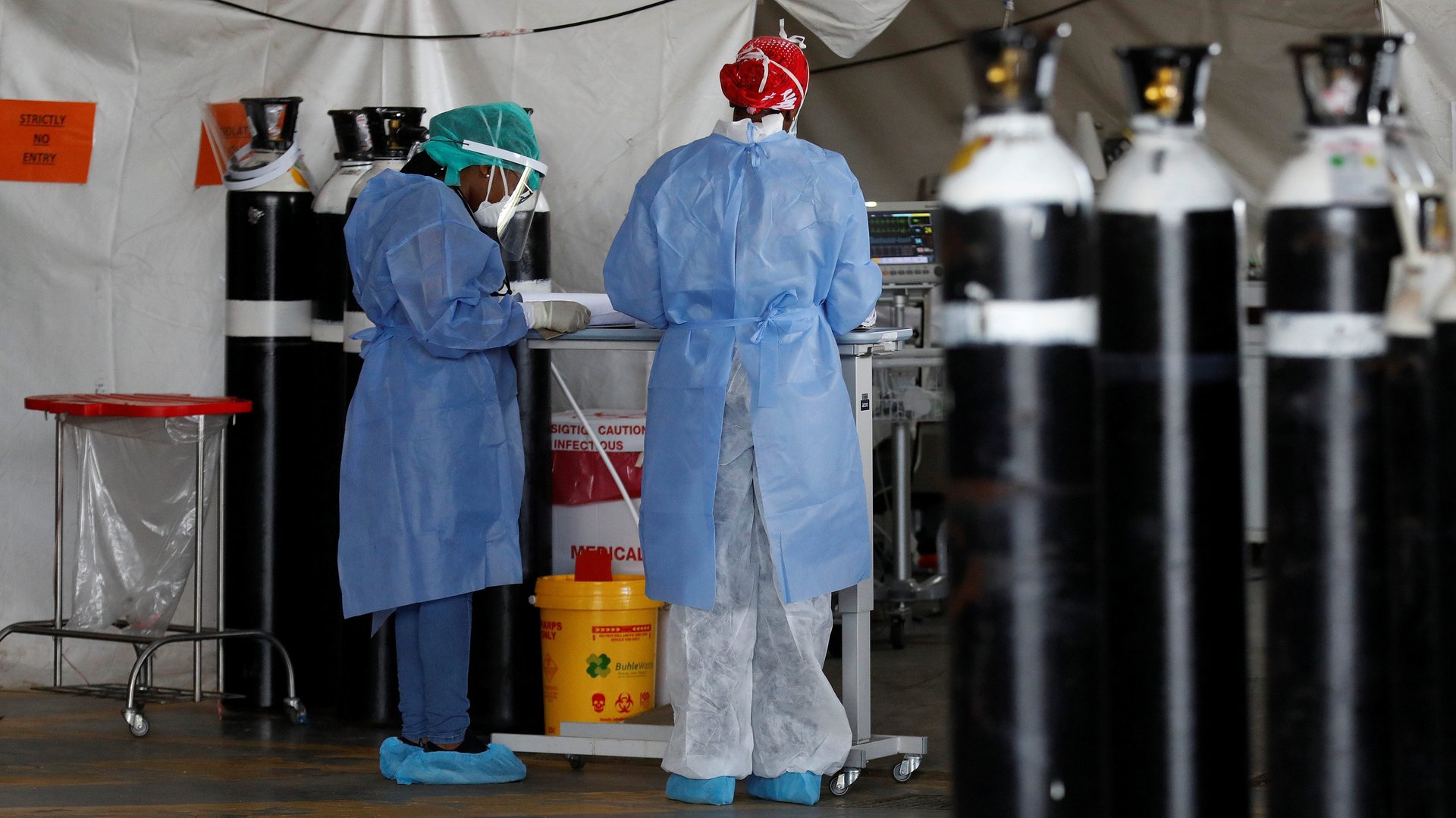South Africa is racing against time to get vaccines as Covid-19’s spread accelerates
The scramble by South Africa for Covid-19 vaccines is intensifying pressure on the government to square its plans for immunizing the country with reality.


The scramble by South Africa for Covid-19 vaccines is intensifying pressure on the government to square its plans for immunizing the country with reality.
President Cyril Ramaphosa has sketched out a program to acquire and administer enough vaccines to immunize two-thirds of South African’s population of 58 million by the end of this year with the goal of achieving so-called herd immunity. But the plan suffers from a shortage of specifics and a surfeit of ambition, say some in the public health community, who have counseled the government to rethink its target and up its transparency.
Public health watchers expect it to take months of planning to be able to deploy vaccines at scale across the vast country. The country’s Department of Health has only recently started to develop a plan to roll out vaccines.
The tension comes as South Africa struggles with a second wave of the pandemic triggered by a variant of the virus known as 501Y.V2, which the government’s scientific advisors say is 50% more contagious than other variants. Though there is no evidence that the variant causes more severe disease, it has led to a wave of hospitalizations.
South Africa accounts for about 30% of the continent’s cases of Covid-19, with more than 1.3 million cases nationwide, including 37,449 deaths, as of Jan. 18.
In addition to toughening a nationwide lockdown, the government plans to prioritize vaccines for 1.2 million front-line healthcare workers. Toward that end, the government recently announced it has agreed to buy from the Serum Institute of India 1.5 million doses of a Covid-19 vaccine manufactured by AstraZeneca.
While delivery is slated for this month and next, the vaccine itself requires two doses, leaving about 40% of the workers in the priority group without an immunization until the government procures more vaccine.
South Africa has secured at least 20 million doses of Covid-19 vaccine from manufacturers, including Pfizer, AstraZeneca, and Johnson & Johnson, as part of a bulk purchase by the African Union, according to the president.
A spokesperson for South Africa’s health ministry confirmed a report that the order includes 9 million doses of the J&J vaccine, which has yet to be established as effective in large-scale trials. Ramaphosa also has said the country expects to receive enough vaccine for 10% of its population through the international distribution initiative Covax.
In December, South Africa joined with India to urge the World Trade Organization to suspend patent protections on vaccines to allow the countries to manufacture their own, a prospect that Shabir Madhi, a professor of vaccinology at the University of Witwatersrand, said in a TV interview isn’t realistic given South Africa lacks both the resources and capital to develop and commercialize a vaccine at scale.
“I think we need to become focused on setting realistic targets,” says Madhi. “For me, a realistic target for the rest of 2021 is to make sure that we get healthcare workers immunized as quickly as possible and then focus on how we’re going to get those individuals at risk of developing severe Covid-19 vaccinated before the next resurgence arrives.”
Sign up to the Quartz Africa Weekly Brief here for news and analysis on African business, tech, and innovation in your inbox